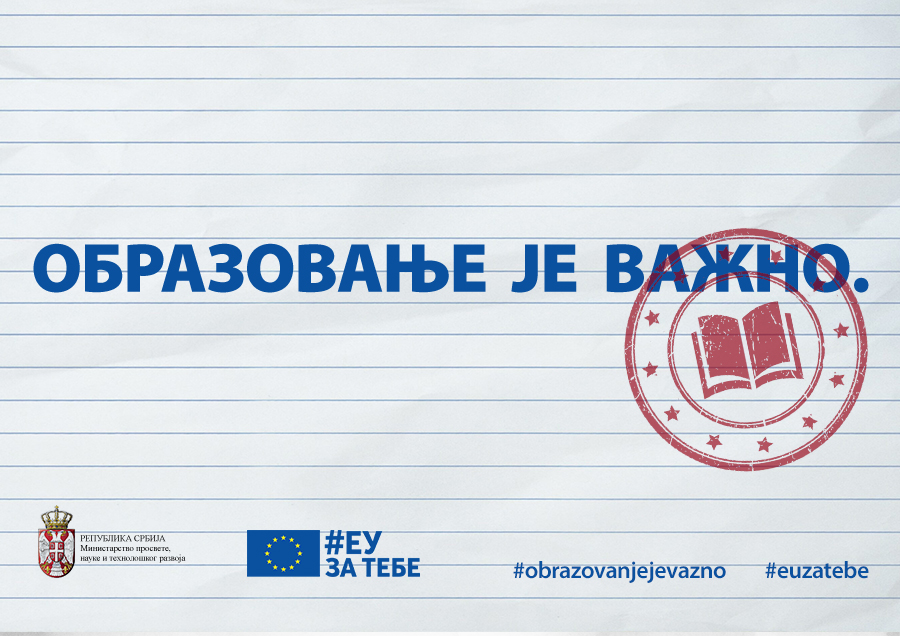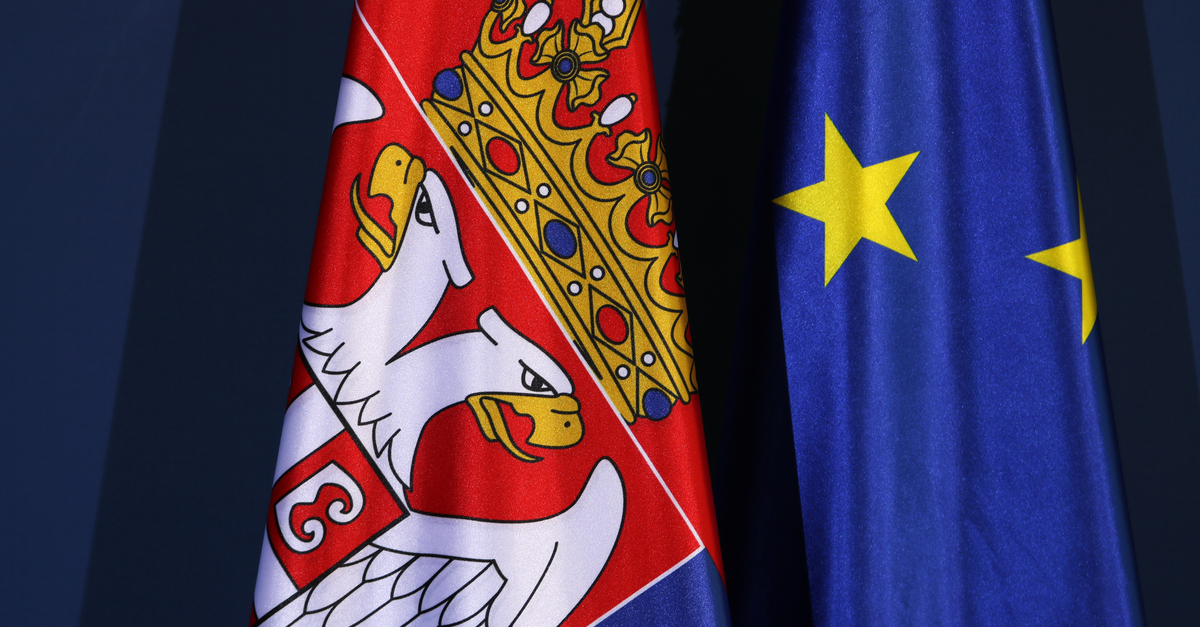European Union has disbursed the third tranche of EUR 6.5 mil for the successful implementation of education reforms carried out by Serbia between 2019 and mid-2020, bringing the total EU grant support to 20.8 million euros through the Sector Budget Support (SBS) programme.
“I congratulate Serbia on the positive assessment of the European Commission in the field of education reform during the reporting period which allowed EU € 6.5 million in grants to be paid into the Serbian budget.
Education is truly the best investment any country could have in its own future. Young generations need and deserve our utmost support. The EU has in the last 15 years donated over EUR 100 million in education sector in Serbia. These new funds will contribute further to this same goal,” said Ambassador Fabrizi.
Funds through the Sector Budget Support programme are allocated on the basis of successful education reforms, following national strategic documents in this field. Specific results in raising the quality of teaching and learning, provision of education in minority languages, education inclusion of Roma students, and linking the world of education and the world of the labour market are specifically taken into account.
The Minister of European Integration, Jadranka Joksimović, stated that the implementation of the Sector Budget Support with such high efficiency in achieving the projected goals speaks of how committed the Republic of Serbia institutions are to essential reforms. “The European Commission acknowledged these efforts with its favourable decision to approve the funds for payment. We are particularly pleased that this type of support is committed to the education sector because investing in human capital is investing in a country’s future. And all the achieved results – training of more than 50% of teaching and non-teaching staff for the application of innovative teaching practices aimed at attaining outcomes, improving the position of vulnerable groups of students in the education system, further developing the National Qualifications Framework – are not short-term, but the results to benefit future generations of pupils and students and teaching staff in our country “, stressed Minister Joksimović.
One of the most significant achievements Serbia made in this period is the comprehensive training of teachers to apply innovative and outcome-oriented teaching practices, which involved 40.000 teachers (almost 50% of all teachers in Serbia). Results were also made in referencing national qualifications framework with the European qualifications framework, as well as in ensuring equal opportunities of the Roma children in the education system.
“The progress achieved in the field of education is encouraging, and further reforms encourage the recognition and support we receive from the EU. It is essential that education is among the new government’s priorities and that it ensures continuity in reforms. The European Union’s support for the reforms we are implementing in education is certainly valuable to us, and we still expect excellent cooperation. The EU is undoubtedly the largest donor in Serbia, and we enjoy support in one of the critical tasks in the coming period – the development of the Strategy for the Development of Education until 2027, “said the Minister of Science and Education, Branko Ruzic.

The EU assessed that Serbia has successfully implemented most of the indicators for the reference period. Room of improvement are still necessary in curricula reform in primary and secondary education; implementation of State Matura; complete roll out of the Law on Dual Education; sustainability of the National Qualifications Framework; strengthening support to vulnerable children (children with disabilities, Roma children and other vulnerable part of the population) with a special focus on key transition periods from one level of education to the next; quality of education in national minority languages and the establishment of a coherent information management system, enabling reporting on relevant national and international indicators and EU benchmarks.
‘These are good and encouraging results that Serbia has achieved in the area of education and carried out also during the difficult pandemic period. We hope to see the rest of the reforms will be implemented with the same commitment, including having Serbia participating in EU education programmes, including Erasmus+ and Horizon 2020’, concluded Fabrizi.




